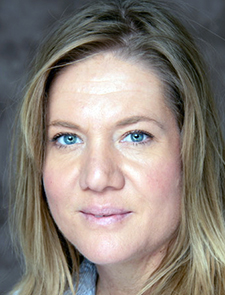 There are a great many debates in medicine. This perioperative topic lecture looked at the controversy of perioperative atrial fibrillation and a second topic of post-operative troponin screenings. The audience voted before and after to see if the presented arguments had swayed anyone’s opinion. The argument put forth by the debaters was also not necessarily the opinion of the debater, though Dr. Shen nearly convinced herself during her arguments to change her own opinion.
There are a great many debates in medicine. This perioperative topic lecture looked at the controversy of perioperative atrial fibrillation and a second topic of post-operative troponin screenings. The audience voted before and after to see if the presented arguments had swayed anyone’s opinion. The argument put forth by the debaters was also not necessarily the opinion of the debater, though Dr. Shen nearly convinced herself during her arguments to change her own opinion.
Both topics started with a case. The case for the topic of atrial fibrillation is a 65-year-old male with a history of hypertension and non-obstructive coronary artery disease, with a good functional capacity. He takes a beta blocker and is undergoing elective, laparoscopic, bilateral, inguinal-hernia repair. He is found to have atrial fibrillation on the monitor in the preoperative area. The question is whether to cancel surgery or proceed.
Dr. Shen, a clinical associate professor of medicine at the University of Washington in Seattle, made the argument to proceed with surgery, as the patient is having a low-risk surgery, the atrial fibrillation is rate-controlled and stable, and the patient is already on a beta blocker. At this point, anticoagulation for the CHA2DS2-VASc score of 2 would be something to consider once through the surgery and recovered. Dr. Shen highlighted the SAMBA (Society for Ambulatory Anesthesia) guidelines which advise that for patients presenting for minor surgeries, it is reasonable to proceed as long as the patient is asymptomatic and hemodynamically stable. Canceling surgery will potentially make the surgeon, patient, and hospital administrators mad.
Dr. Irizarry Alvarado, an internist, lead physician, and member of the SPAQI guidelines committee at Mayo Clinic in Jacksonville, Fla., tackled the postponed-surgery argument. He highlighted that perioperative atrial fibrillation is associated with an increased risk of perioperative cerebrovascular accident and heart failure and increased 30-day mortality. He said we should get back to basics as per the 2014 American Heart Association guidelines: the presence of an arrhythmia in the perioperative setting should prompt an investigation into the underlying process. The atrial fibrillation is often a symptom of something else and that should be uncovered before proceeding with surgery.
After both arguments were made, few minds were changed on the atrial fibrillation topic, though both presenters and coaches kept the audience thoroughly engaged and entertained.
Next up were the arguments for and against checking post-op troponins in high-risk patients. The case was a 65-year-old female with a history of coronary artery disease and a left anterior descending artery stent 18 months ago who was scheduled for aortobifemoral bypass. Her revised cardiac risk index is 2.
Dr. Irizarry Alvarado tackled the “no” argument. He argued that there are many reasons for elevated troponins, not all are cardiac, and that this is usually more of an indicator of an underlying process that needs to be addressed rather than coronary disease. There is an increase in overall mortality, but the large majority are not cardiac. In fact, 55% have no identifiable cause. The checking of troponins creates an increase in cardiology consults, unnecessary testing and imaging, and intensive-care and cardiac-care transfers, while potentially complicating and lengthening the patient’s hospital stay unnecessarily. A study of more than 2,000 patients found there to be the same mortality among those who had troponins measured as among those not measured. There is also the question of what to do with the results, with no clear guidelines on management. One may perhaps have a lower threshold to treat a borderline hemoglobin or perhaps check for pulmonary embolism or other underlying causes, but you are probably not going to change the overall management of the cardiac disease, which would continue to focus on secondary prevention.
Dr. Shen’s “yes, just do it” argument focused on the fact that myocardial injury after non-cardiac surgery, or MINS, is common (occurring in 25% of vascular patients) and asymptomatic, and has high mortality at 19%, and we do have treatment (which would be secondary prevention). Postoperative troponin testing in high-risk patients is recommended in one form or another by the American Heart Association, European Society of Cardiology, and Canadian Cardiovascular Society. It is also recommended in UpToDate, a frequently used clinical information resource. The opposing Dr. Pfeifer (a professor of medicine and general internal medicine and medical director of perioperative services at Medical College of Wisconsin’s Froedtert Eye Institute in Milwaukee, Wisconsin) himself was quoted in an article as saying it should be considered in high-risk patients. The argument is that “a near miss that doesn’t happen today is the accident that doesn’t happen tomorrow.”
In the case of the troponin argument, some participants’ minds were changed from their original opinion. The discussion afterward indicated that the consensus was that the checking of troponin will likely be included in updated guidelines soon to be released, and though not everyone is fully drinking the Kool-Aid yet, it is likely coming; the main thing would be to test knowing what your plan would be if you do, and that that plan cannot be “consult cardiology.”
The slides and arguments were entertaining, and the banter and roasting were lighthearted, making this a very enjoyable and engaging presentation. There were frequent Godfather references which is, of course, appropriate; to use a relevant quote, “It’s not personal, it’s strictly business.”

Dr. Klawonn
Dr. Klawonn leads the perioperative clinic at Carilion Clinic and is an assistant professor at Virginia Tech Carilion School of Medicine in Roanoke, Va.
Nice description of the session. This debate has been a recurrent session at the SHM annual meeting for over 10 years and is always entertaining and educational. Although I was only the coach this time, it was still very enjoyable. It was a please to see Edie (The Godmother) present her cases such that the audience couldn’t refuse to follow her suggestions.